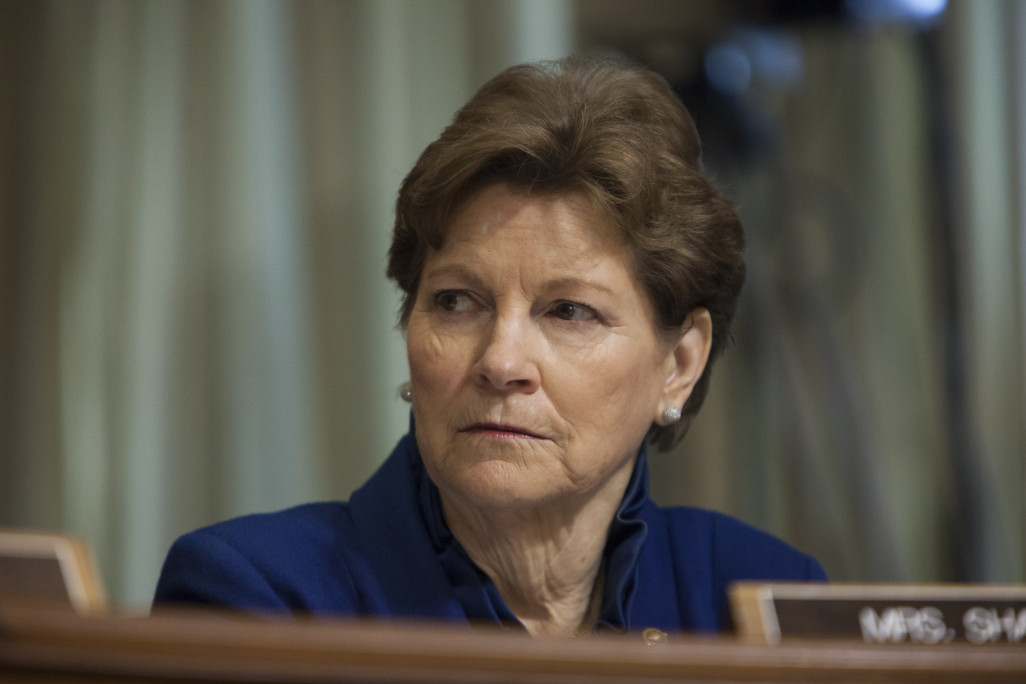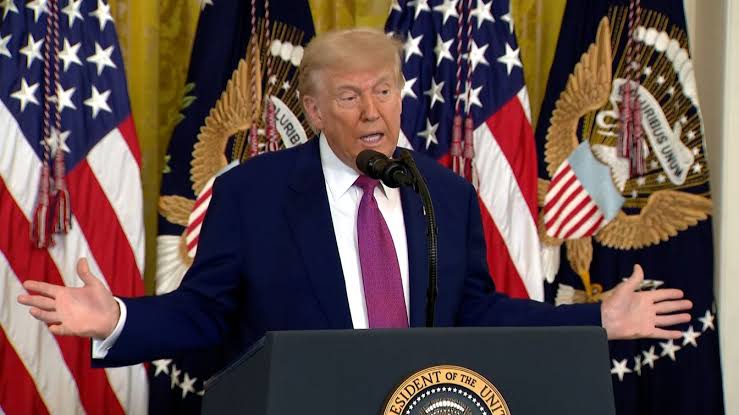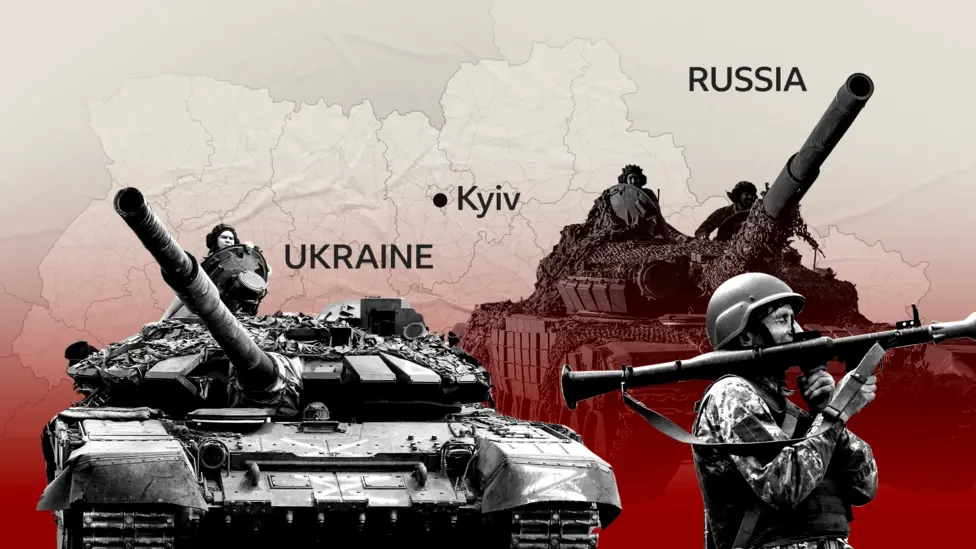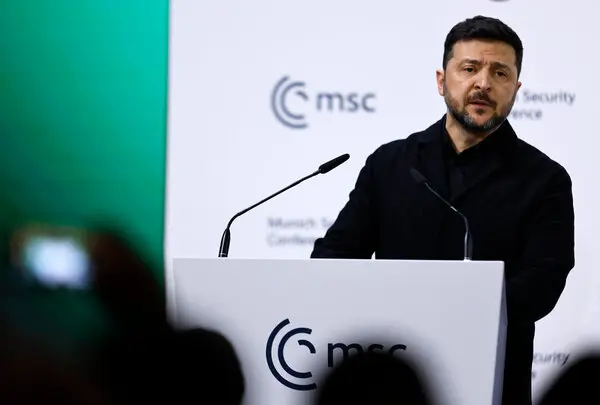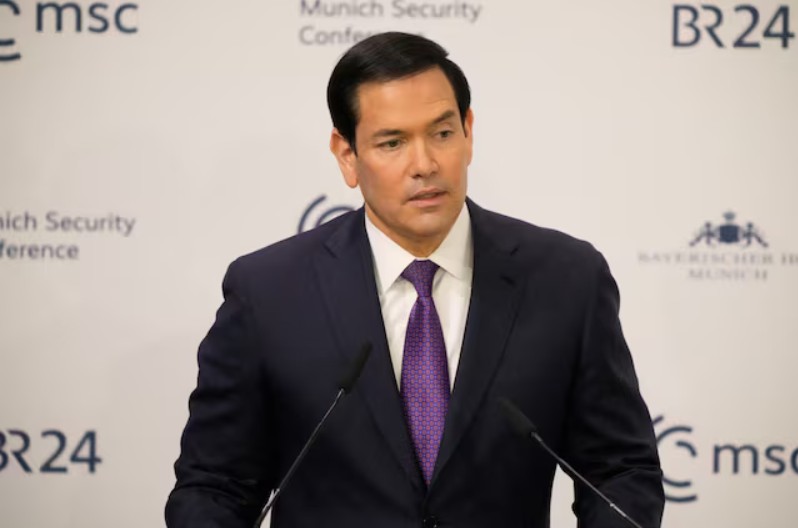Sen. Jeanne Shaheen of New Hampshire is a senior member of several key committees, including Appropriations, Armed Services, and Foreign Relations, where she chairs the Subcommittee on Europe and Regional Security Cooperation. In August, she traveled with House Intelligence Committee Chairman Mike Turner to the Republic of Georgia, where she raised concerns about Russian influence and democratic backsliding in the country. She spoke to Cristina Maza recently about her trip and U.S. concerns about Georgia’s democratic trajectory, including the country’s passage in May of a foreign-agents law that was met with widespread protests. This interview was edited for length and clarity.
During your recent trip to Georgia, you met with officials, including the prime minister and the president, and you raised concerns about the foreign-agents law that Georgia recently passed. Could you explain why the law is such a problem?
We have been expressing our concern about the law since the first time it was introduced over a year ago. We’ve heard from civil society groups, and we had a chance to meet with a number of those again on this trip, including many that are involved in election monitoring and are concerned with making sure we have a free and fair election in Georgia in October.
What we heard from those groups is their concern that they will not be able to operate in the country after this law [is implemented]. It mirrors a similar law that was passed in Russia that led to the exodus of so many civil society groups from Russia. And we’re seeing the same thing happen in Georgia.
We’ve also heard from the [European Union] that the law is not consistent with the EU’s requirements for membership, so it has raised real red flags in terms of Georgia’s application for candidacy within the EU.
When you speak with Georgia’s prime minister, Irakli Kobakhidze, whose Georgian Dream party has pushed this law through, what reasons does he give you and other members of Congress for why they are implementing this despite its unpopularity?
They claim it’s for transparency, that they want to keep track of what’s going on. But that’s not really what's going on. It’s about clamping down on civil society. It’s about opposing any dissent at all.
One thing that the prime minister said to us when we met with him—we were talking about the relationship with the United States and our concern about the deterioration of the relationship and the unwillingness of the Georgian Dream government to address the concerns that have been expressed—and his one request was that we stop funding all civil society organizations that might be critical of the Georgian Dream government.
Congressman Turner was very clear. He said, “That’s what a democracy is about.” It’s not about shutting down dissent and disagreement. It’s about recognizing that there will be criticism of what you do. That’s part of what a democracy is about.
So it’s even more distressing to see that since our visit, the government is talking about disbanding all opposition parties. They’re basically talking about becoming an autocracy. They want to be a dictatorship, not a democracy.
How concerned are you about the October elections? Is there a way for Georgia to continue to be a democracy if these upcoming elections aren’t free and fair?
Sadly, what we’re seeing are more and more moves toward backsliding on their democracy, and doing it in a way that is not consistent with what the people in the country want. I think it’s very hard to see how [Georgia] continues as a democracy if the elections aren’t free and fair.
We’ve expressed our concern about that in our meetings with the defense minister, the prime minister, and the foreign minister. We also met with President [Salome] Zourabichvili, who shares the concerns we have expressed.
What we heard was, “No, no, we’re going to allow domestic observers. We’re going to allow the elections to go forward. We’re focused on making sure they’re free and fair.” But every statement that seems to be coming out of the government is not consistent with that.
I understand you also visited the separation line with South Ossetia–a part of Georgia that claims to be independent and is supported by Russia–during your trip. What did you see there? What can you describe about the situation on the ground now?
Well, it’s hard to understand why the country is mirroring Russian laws when the Russian Federation is occupying 20 percent of its territory and it’s encroaching more and more on Georgian territory.
We visited the administrative boundary line with South Ossetia. What we heard was real concern about the people of Georgia who were in that province, about their treatment, about the lack of benefits and support that they were able to get, health care in particular, because they were inside the administrative boundary line.
We had a chance to meet with some students in the Gori area who are part of a program that we’re helping to fund. A number of them talked about their families being divided, some being stuck inside South Ossetia, and others who had to flee because of the Russian occupation. We talked about the concerns that’s created for the families and the hardship.
I appreciate that Georgia is in a difficult geography. But it’s hard to understand why they think their future is going to lie with Russia when Russia is occupying their territory. And what we heard is real concern about the potential for Russia to take even more territory.
The United States paused about $95 million in assistance to the Georgian government in May. How could that potentially change the country's direction?
There is an assessment going on now about our policy toward the Georgian government. Whether we’re going to reinstate that funding depends on that assessment. We also suspended our military exercises, and we heard from the defense minister real concern about that and the message that sent to the Georgian people.
But as we said to both the defense minister and the prime minister, it’s hard for us to be able to justify bringing troops in and doing military exercises with a government that’s claiming the United States is trying to overthrow your government.
You have this conspiracy theory that the United States is trying to overthrow the government. We don’t want to do anything that’s going to contribute to that conspiracy theory.
You put forward a bipartisan bill in May called the Georgian People’s Act. It aims to hold government officials accountable for corruption, human rights abuses, and undermining democracy. What incidents of corruption and human rights abuses are you most concerned about, and what are the prospects for the bill’s passage?
There are a number of provisions from the bill that are in the [annual National Defense Authorization Act], so our hope is that the major provisions, including the sanctions, are going to go forward. We’re waiting to get sign-off from the banking committee on the sanctions provisions that are there.
We’re very concerned about this foreign-agents law and other efforts to tamp down civil society. We’re concerned about whether this is going to be a free and fair election, and we’re concerned about what appears to be an orchestrated effort on the part of the Georgian Dream to go after dissidents who don’t agree with the policies of the government.
We spoke with a number of people who had been beaten because they were willing to speak out against the government. We’re hearing, on a number of fronts, real concern about what this government is doing and their repression of their citizens.


